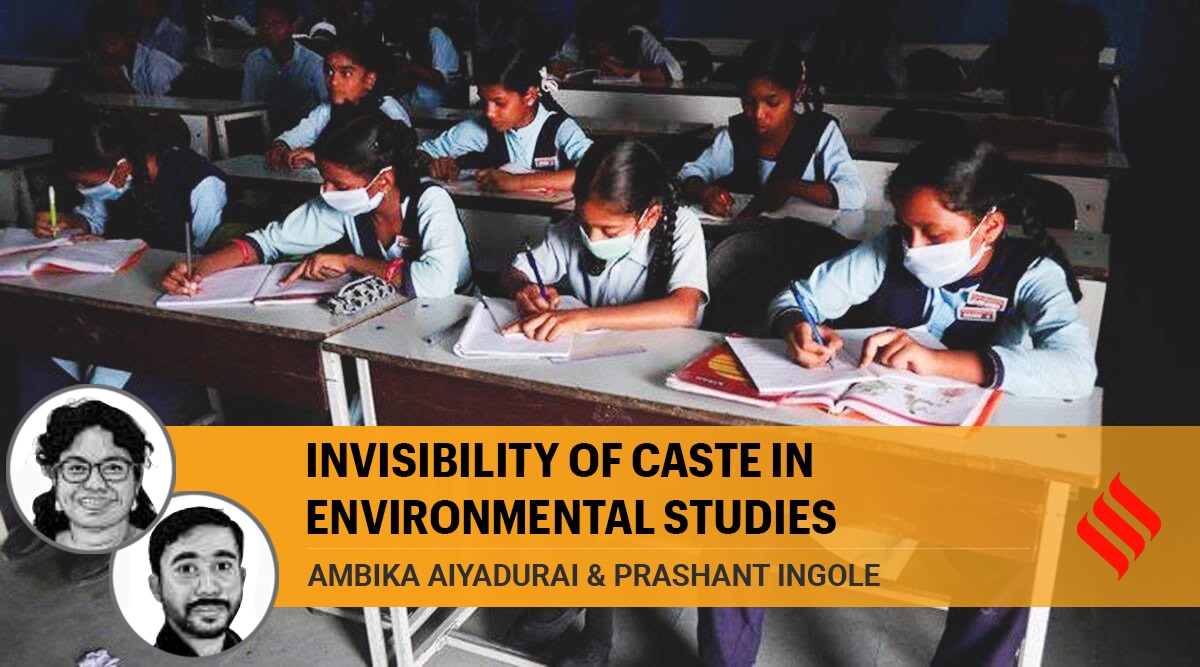Updated: November 29, 2021 7:07:43 am
 We raise two points. First, why is this so in environmental studies in general and Environmental Humanities, in particular. Second, what are the (im)possibilities of anti-caste Environmental Humanities in Indian academia? (File Photo)
We raise two points. First, why is this so in environmental studies in general and Environmental Humanities, in particular. Second, what are the (im)possibilities of anti-caste Environmental Humanities in Indian academia? (File Photo) Written by Ambika Aiyadurai & Prashant Ingole
When we discuss environmental issues in Indian academic spaces, there is reluctance on referencing caste. Environment as a formal subject is taught in most institutions. The field of Environmental Humanities started around 2000 and has been gaining momentum, but in India, it functions with the glaring omission of caste.
We raise two points. First, why is this so in environmental studies in general and Environmental Humanities, in particular. Second, what are the (im)possibilities of anti-caste Environmental Humanities in Indian academia?
Way back in 1997, the late Gail Omvedt had drawn our attention to the question ‘Why Dalits dislike environmentalists?’. Preservation of resources, protection of species, setting up of protected areas and campaigns for environment often do not acknowledge the role of as well as impact of these initiatives on the marginalised, mainly Dalits. While there are new studies exploring the issues of caste in the context of the environment, for example Mukul Sharma’s Caste and Nature, caste-related discussions are yet to be included in the formal pedagogy.
Why are the issues of Dalits and their relation with land, water and food seldom highlighted in environmental academic discussions? Is it because the dichotomy of mainstream and margin is subverted, where the “margins” are essentially the core component of the environment studies discipline. In the field of environmental humanities, the emphasis is on “interconnectedness”, between humans, nonhumans; nature, culture; and people, environment. This appears an antithesis to the Indian social system that is deeply and rigidly hierarchical, with unequal access to resources, along the gradient of caste.
The invisibility of caste in environmental studies is deliberate. In fact, some studies justify the caste system as a sustainable way reflecting “genuine cultural adjustment” to “shared” resources. One particular study by M Gadgil and K C Malhotra, ‘Adaptive Significance of India’s Caste System: An Ecological Perspective’, claims that “resource partitioning” has helped reduce competition over scarce natural resources, and created the right psychological environment.
Such studies thus legitimise the misappropriate distribution of resources without questioning the inbuilt structural mechanisms holding back Dalits.
Lack of representation of Dalits or tribals in these institutions is also a reason. It is our failure that anti-caste discourse, and literature and culture of the marginalised, are yet to become institutionalised in premier educational institutes. Inclusion of caste in the formal syllabus of environmental studies seems possible only at the individual faculty level. For example, at IIT Gandhinagar, where we are based, it is an important part of a formal course. We invite Dalit poets and researchers to discuss their work on environment with reference to caste, with a mandatory field trip.
One of the field sites is Ahmedabad’s largest garbage dumping site at Pirana. Those who inhabit these highly degraded inhumane spaces are invariably Dalits, Muslims and the migrant poor. Caste and its connection to resource distribution is what Joel Lee has appropriately coined ‘Environmental Casteism’.
While elite institutes may appear less enthusiastic to including caste, the power of individuals in making caste issues part of the formal environment curricula is possible. We strongly believe that an anti-caste approach and perspective from the margins will make this field more inclusive and diverse in terms of adding more critical reflections from a Phule-Ambedkarite point of view.
This will be an attempt to de-casteise and de-Brahmanise along the lines of Braj Ranjan Mani’s argument of questioning Brahmanical pedagogy.
Prashant Ingole is a Postdoctoral Fellow and Ambika Aiyadurai an Assistant Professor at IIT Gandhinagar, and the author of Tigers are Our Brothers: Anthropology of Wildlife Conservation in Northeast India
Suraj Yengde, author of Caste Matters, curates the fortnightly ‘Dalitality’ column
- The Indian Express website has been rated GREEN for its credibility and trustworthiness by Newsguard, a global service that rates news sources for their journalistic standards.

